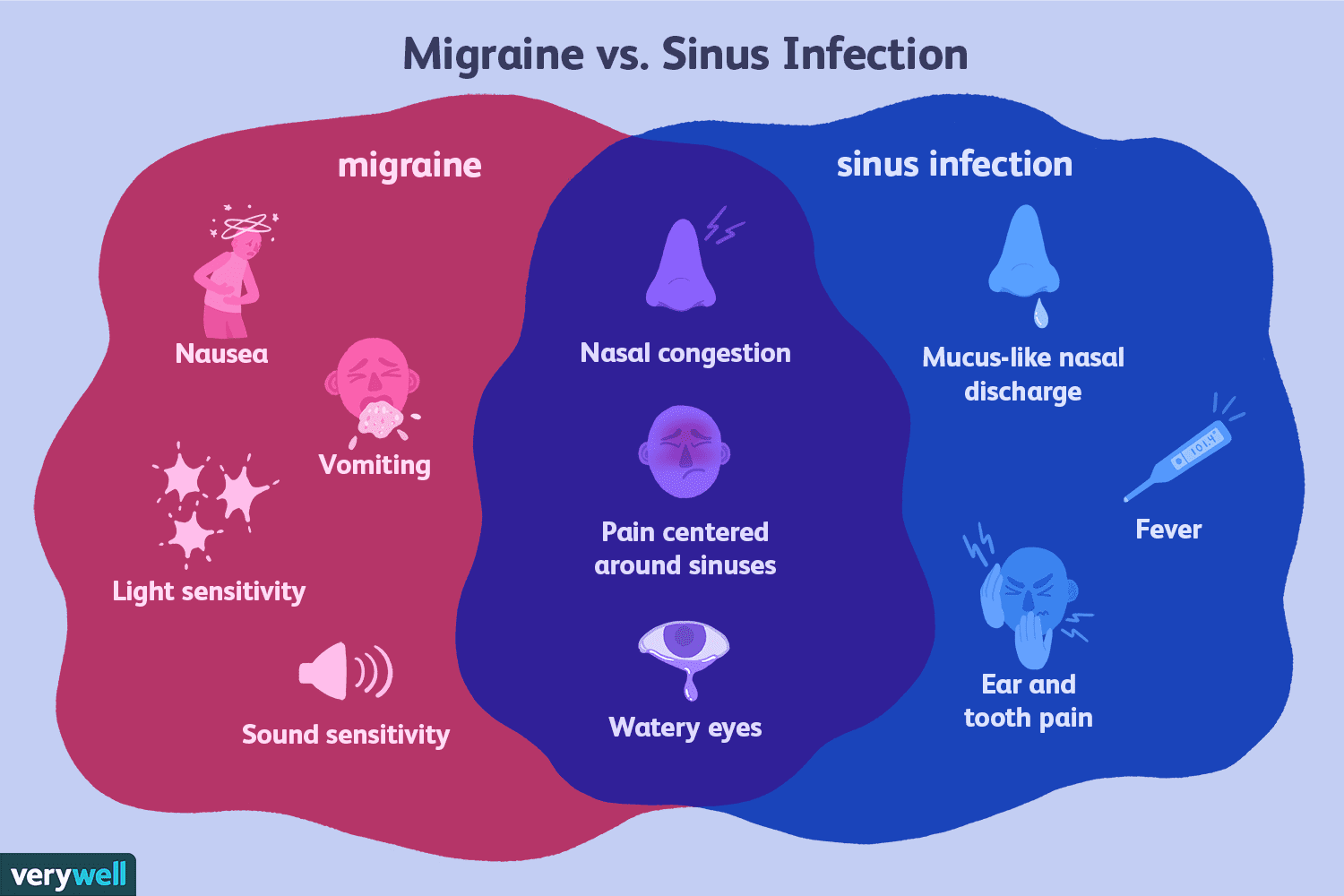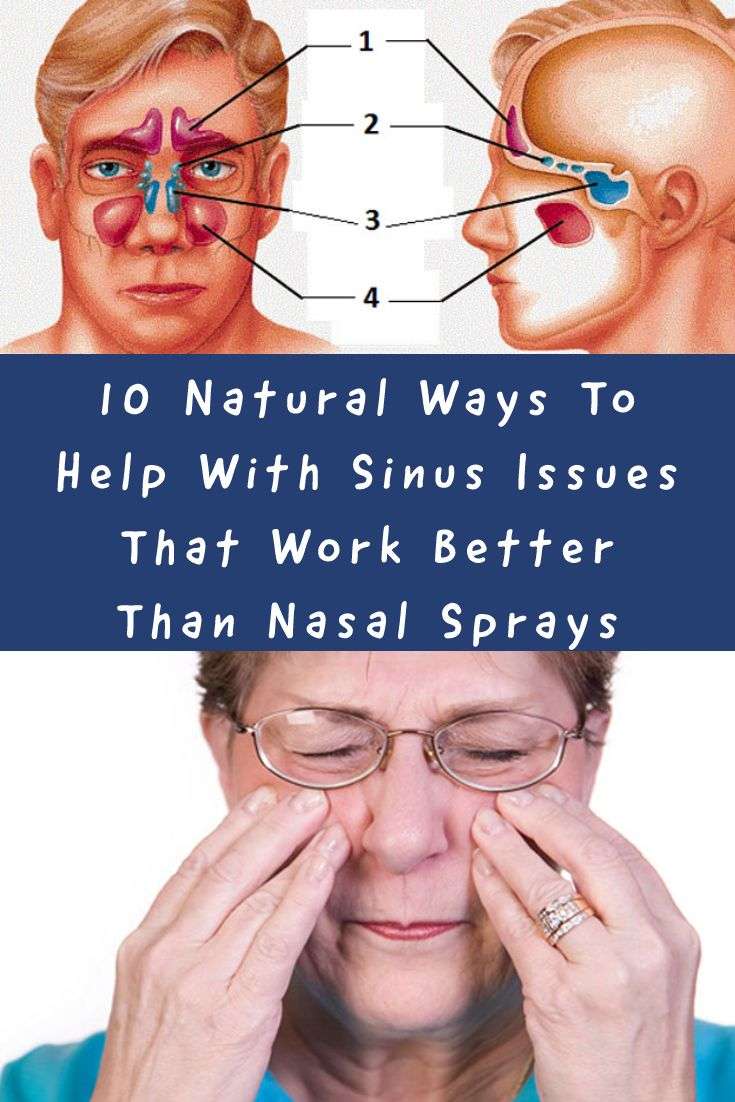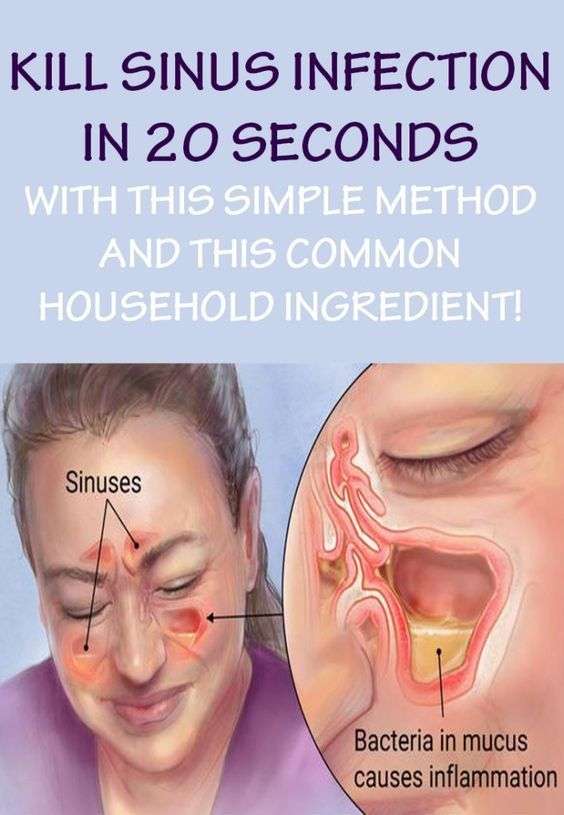What Tests Diagnose The Causes Of A Sinus Headache
It is important that the cause of the headache be diagnosed. Many patients who believe that they have sinus headaches may instead have migraine or tension headaches.
The health-care professional will likely begin by taking a history of the symptoms to help come to the diagnosis. Contributing factors in the development of sinusitis and headache may include a recent cold or upper respiratory tract infection, history of smoking, environmental allergies to dust or molds, as well as recent airplane travel, swimming or SCUBA diving, or other activities involving air pressure changes within the facial sinuses.
Physical examination may reveal tenderness to percussion, or tapping, over the affected sinus that reproduces the pain. Examination of the ears may reveal a serous otitis, or fluid levels behind the eardrum in the middle ear, that may suggest drainage problems in the face and sinuses. Examination of the nose may reveal swollen nasal passages and discharge. Evaluation of the mouth and teeth may find a source of infection, and the back of the throat may be examined for signs of postnasal drainage.
How To Tell The Difference Between A Migraine And A Sinus Headache
An actual sinus headache, also called rhinosinusitis, is not as common as most people think. The most common causes of a sinus headache are viral or bacterial infections. These infections can cause yellowish thick nasal discharge, diminished smell/ taste, fever, headaches, bad breath, cough, and pain in the teeth or ears. The typical treatment includes antibiotics and should clear up within seven days.
Migraines, on the other hand, are more than just bad headaches. According to The American Migraine Foundation, migraines affect at least 39 million patients in the U.S. alone. But, as many people do not have a correct diagnosis, the real number is potentially much larger. The most common symptoms of migraines include headaches accompanied by pounding or throbbing sensation, sensitivity to light, sound, or other stimuli, nausea, nasal congestion with thin, clear mucus, and fatigue.
Its an excellent idea to schedule a visit with your doctor when your headaches grow worse over time or become more frequent when over-the-counter medication ceases to provide relief and begins to interfere with your ability to function at a normal level.
Are Sinus Headaches And Migraines Related
People who often have allergies with a runny nose are 10 times more likely to have migraines. Asthma and migraine also share some of the same triggers.
So, do sinus and breathing problemscause migraines? Probably not, but it seems these conditions could be related somehow. If you want relief, you’ll need the right diagnosis and, if you have more than one condition, to consider treatment for each separately, even when they’re happening at the same time.
You May Like: Get Rid Of Sinus Pressure Headache
Treating Sinus Headaches And Migraines
Despite their similarities, sinus headaches and migraines may be treated differently. For sinus headaches, treating the underlying sinus infection can usually resolve the headache. Taking over the counter headache medications can also help with the pain and inflammation of sinus headaches.
Because migraines are more complex, they may not respond to conventional OTC pain relievers. While some prescription migraine medications are designed to provide relief once a migraine has started, others prevent them by addressing the underlying physiology
Sinus Migraine: When Sinus Pain Is More Than A Headache

You have a headache. It extends over your eye and you have pressure in your face. Your nose even runs a little. You take some Sudafed or ibuprofen, tell everyone you have a sinus headache or even a sinus migraine, and lay down for a while. Two or three hours later you are better. You might have a little residual soreness and you might be a little tired, but the worst of the headache is over. Youve just had a sinus headache or was it?
You could have had a migraine that isnt even related to any sinus issues and not realize it. You felt sinus pain and pressure, so your mind automatically went to sinus headache. Your doctor may even have told you it was sinus related and the subject of migraines never came up. It happens a lot more than you might think. In fact, nearly 90% of patients who visit their doctor and complain of sinus headache actually have a migraine or migraine-type headache.
This is an easy misdiagnosis, but its important to get it right because sinus-related headaches and straight-up migraines are treated differently. For a sinus headache, a decongestant could be key. But if youre having a migraine, you might benefit most from a simple pair migraine glasses like these, or other remedies that are designed for migraine.
Read Also: What Is The Best Otc Sinus Allergy Medicine
How Does A Doctor Know Whether Its Sinus Or Migraine
Migraine is a clinical diagnosis, says Weber. That means that the doctor will ask you about your family history of migraine, allergies, and any other symptoms to determine if you have migraine or sinus headache.
To help your doctor make the correct diagnosis, it can be really helpful to track what youre experiencing, says Lauren Doyle Strauss, DO, a headache specialist and assistant professor at Wake Forest Baptist Health in Winston-Salem, North Carolina.
Write down your symptoms, says Strauss. Where is the pain located? Are you tired or dizzy? Are you sensitive to light or sound? Do you have an upset stomach or vomiting?
In addition to considering your symptoms, there can be tests used to identify sinus problems. A headache caused by a sinus infection is typically diagnosed with a CT scan of the sinuses, says Weber.
Is It A Sinus Headache Migraine Or Tension Headache
Sinus headaches are easy to confuse with migraines and tension headaches because the signs and symptoms of the three overlap. Analyzing the location and duration of the pain along with other factors can help distinguish between them.
Location of Pain
- Sinus headaches: Tend to be on both sides of the head above the eyebrows, behind the eyes and down the front of the face to the top of the mouth. If a persons sinuses are clogged, they can be one-sided.
- Migraines: Are often located on only one side of the head.
- Tension headaches: Frequently feel like theyre all over the head or just in the temple and back of the head down the neck.
Duration of Pain
- Sinus headaches: Seem to come out of nowhere and last, with varying levels of intensity, for hours, days, or even weeks.
- Migraine pain: Can present suddenly or gradually and can last anywhere from one hour to two weeks.
- Tension headache: Pain begins gradually and then slowly builds up. It typically resolves in a few hours.
Other Factors
- Symptoms of sinus headaches: Include nasal congestion, sore throat, and feeling worse when lying down.
- Symptoms of migraines: Include nausea, vomiting, extreme sensitivity to light, and experiencing auras .
- Symptoms of tension headaches: Include sore back, neck, and shoulders.
Sinusitis can often be a trigger for migraine and tension-type headaches. So, it can be very complicated when more than one type of headache is occurring in the same patient.
Recommended Reading: Can You Give Someone A Sinus Infection
When To Seek Medical Advice
Most cases of otitis media pass within a few days, so thereâs usually no need to see your GP.
However, see your GP if you or your child have:
- symptoms showing no sign of improvement after two or three days
- a lot of pain
- a discharge of pus or fluid from the ear some people develop a persistent and painless ear discharge that lasts for many months, known as chronic suppurative otitis media
- an underlying health condition, such as cystic fibrosis or congenital heart disease, which could make complications more likely
Read more about diagnosing middle ear infections
What Are The Signs Of A Sinus Infection
Because a sinus infection often has similar symptoms of a common cold and allergies, it can be hard to tell the difference between the three. The common cold typically builds, peaks and slowly disappears, and it usually lasts a few days to a week.
Nasal allergies usually produce mucus that is clear, while a sinus infection is often accompanied by thick, colored mucus and a fever. Weve listed other tell-tale signs and symptoms of sinus infections below.
Recommended Reading: How To Get Rid Of A Sinus Infection Without Medication
Barometric Pressure: Effects On Sinuses
Most people donât think much about how barometric pressure might affect them, especially when theyâre younger. However, as the body ages, it may become more susceptible to environmental triggers for pain. When the barometric pressure changes, it can cause changes to the way blood flows through the body, causing increased or decreased blood pressure, sinus pressure, and more.A change in barometric pressure may be responsible for increased instances of migraines and weather may cause changes so subtle that itâs difficult for sufferers or their physicians to discern the problem.Barometric pressure and sinuses also share connections that are not yet fully understood by the scientific or medical communities, making it difficult to pinpoint the exact changes that trigger migraines, stuffiness, changes in blood pressure, and more.Watching the weather for upcoming changes in the barometric pressure, and being aware of when those changes are taking place, can give sufferers a chance to head off problems and pains before they begin with a proactive, preventative approach as recommended by their physician.
Can Sinus Infections Cause Headaches
by Social Joey | Dec 1, 2021 | Uncategorized
Yes, they can, sinus headaches arent the most common sinus infection symptoms. In fact, its often the case that most migraines are mistaken as sinus headaches. Why is this, though?
Our AFC Urgent Care Ooltewah team provides some helpful answers and information on sinus infections below, so keep reading!
Recommended Reading: What’s Good For Sinus
Signs And Symptoms Of Sinus Headaches
Caused by a viral or bacterial sinus infection, sinus headaches are relatively rare. Their symptoms include:
Stuffy nose
Facial swelling or puffiness
Fever
When trying to determine if what youre experiencing is a sinus headache, ask yourself if youre feeling congested, and whether it hurts when you press down on your cheeks or forehead . If the answer to these questions is no, its probably a migraine or a tension headache.
What Are The Symptoms Of Sinus Headaches And Migraines

Sinus headaches and migraines have the following symptoms in common:
- Pain in the head especially the forehead
- Itchy, watery eyes
- Worsening pain when you move
Migraines tend to also have some of the following symptoms:
- Nausea or vomiting
- Sensitivity to light or sound
- Severe pain located on one size of the head
Sinus headaches and migraines are often confused, and its important to know which type you have so you can receive treatment thats more likely to help.
If youre experiencing headaches, make an appointment today for an evaluation at Houston Sinus Surgery at the Yeung Institute. Well correctly diagnose the type of headache you have as well as any underlying issues that are causing them and devise an effective treatment plan.
You Might Also Enjoy…
- 5/5
Recommended Reading: Advil Sinus And Pain Dosage
Ways To Relieve Headache Or Migraine Pain
Sinus headaches happen when the sinuses become blocked and swollen. It is very common to experience facial pain and headaches when you have sinusitis. There are lots of different self-help techniques you can try at home to relieve symptoms, but in severe cases should go to an ENT specialist.
Breathing moist air, using hot and cold compresses to ease swelling, and taking over-the-counter medication can help. If your headaches do not improve, you may need more intensive treatments.
Can Sinus Pressure Cause Migraines
Sinus headaches and migraines are often commonly confused, but its important to know which type of headache you have since that affects the type of treatment you need.
In this blog, Dr. Cecil Yeung of Houston Sinus Surgery at the Yeung Institute explains more about sinus headaches and migraines, including whether sinus pressure can cause migraines.
Also Check: Does Prednisone Help With Sinus Infection
What Are Sinus Headaches
Real sinus headaches are almost always from a sinus infection. Sinus infections are common with 10% to 30% of the population experiencing at least one sinus infection each year.
Sinus infections are also known as sinusitis or rhinosinusitis. This occurs when the sinus becomes inflamed. Common symptoms include thick nasal mucous, blocked nose and facial pain. Sinus infections may be caused by an infection, allergy or air pollution. Most cases are due to viral infection. Infections are often transmitted through coughing, sneezing, kissing, contact with contaminated surfaces, food or water or contact with infected animals or pets.
To understand how sinus headaches are confused with migraine its important to know what migraine is.
How Each Is Diagnosed
Anyone who wants to determine the cause of their headaches should make an appointment with their doctor. A doctor will ask about a personâs symptoms, including their frequency and severity and whether they are associated with certain triggers. A doctor will also take a detailed medical and family history.
Additionally, they may perform a neurological exam to test the following:
- mental status
- reflexes
You May Like: Vitamins To Prevent Sinus Infections
Olive Oil For Pain Behind The Ear
You can use olive oil as a natural medicine to soften ear wax and help treat a mild infection of the outer ear. Warm olive oil helps to loosen and dissolve ear wax to naturally unblock your ears.
How to use olive oil for earache:
You can also use food grade 3% hydrogen peroxide to help clear a mild outer ear infection that is causing you pain.
Sinus Migraine: A Costly Blindspot In Medical Care
Sinus migraine is a frequently overlooked diagnosis and this oversight in clinical care has profound financial and other consequences: a leading misuse of oral antibiotics, inappropriate sinus surgery, and prolonged patient suffering and disability. Although lacking consensus on pathophysiology, diagnostic criteria and nomenclature, medical professionals need to know more about this alternative explanation for patients complaints of sinus pressure, pain, nasal congestion and runny nose. In a review of research, Frederick Godley, MD and his team explore the silent epidemic of misdiagnosed migraines and seek to instil change.
Essentially, they argue that most patients and their caretakers are being fooled by a faulty, or hypersensitive, nervous system, otherwise known as a migraine. Even though clinicians are taught to ask what a patient means when they say they have sinus problems, they often neglect to ask all the questions that might identify a non-infectious cause. Many patients are thus misdiagnosed and receive inappropriate treatment. The review explored the impact of misdiagnosis or delayed diagnosis and found that patients suffer a range of unfortunate consequences including overuse of antibiotics, the cost and risk of sinus surgery and prolonged suffering.
While most think of migraine as a nasty headache, it is really a disease of the entire nervous system.
Also Check: How Do You Diagnose A Sinus Infection
Are Sinus Headache And Migraine Easily Confused
Yes, they are according to the research. The pattern of migraine pain is different for individual patients. While the most easily recognized migraine headaches are localized to one side of the head, many patients feel pain or pressure on both sides, or in the neck or sinuses. This is because all of these areas are innervated by branches of the nerve that are most involved in migraine. For patients with sinus symptoms the most frequent patterns of pain and pressure are across the forehead and behind the eyes, but any sinus area or combination is possible.
A study called SAMS recruited the first 100 people to respond to their local ad. The ad asked those to come forward who believed they had sinus headache. Each participant was carefully examined in a 90-minute evaluation and imaging tests were conducted.
The findings showed that most of them had been wrongly diagnosed and in fact had a diagnosis of migraine.
Treatment For Sinus Pain

If you have pain thats caused by sinusitis, the following self-care measures may help ease your symptoms:
- Inhaling steam.Inhaling steamy air may help loosen mucus and ease inflammation. You can do this by draping a towel over your head and leaning over a bowl of warm water. Standing in a warm, steamy shower may also help.
- Using a nasal wash. A nasal wash is a saline solution and helps to flush out your sinuses. You can buy saline washes over-the-counter or make your own at home.
- Taking OTC medications. Various OTC medications may help relieve symptoms like pain, inflammation, and sinus congestion:
- pain medications like ibuprofen , naproxen , and acetaminophen
- nasal decongestants, such as Sudafed and Mucinex Sinus Max
- nasal corticosteroids like Flonase and Nasacort
You May Like: Severe Headache From Sinus Pressure
Sinus Headache Definition And Facts
- Sinuses in the face are air the spaces that develop from the nasal passages and help with air humidification and mucus secretion.
- Inflammation of the sinuses may decrease the ability for the mucus to drain, increasing pressure within the sinuses, which can cause a sinus headache. Common causes of inflammation include allergies, infections, or colds.
- Symptoms of a sinus headache include pain in the face that may worsen with bending down or straining
- pain that radiates to the forehead, temple, or cheek
- runny or stuffy nose